Collection
The Best Books and Articles I Read in 2019
"This post will share the most impactful articles and books that I’ve read in the last 12 months." - Tim Ferriss

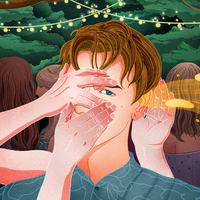
Many of you know that Tim’s We Learn Nothing, his dazzling collection of humor and insight, is one of the few books in the Tim Ferriss Book Club. To get a taste, you can listen to one of my favorite chapters, “Lazy: A Manifesto,” in this short 20-minute episode of the podcast. I’ve been eager to revisit Tim’s work, and I’m now digging into his latest collection of essays. Tim’s fans include people like filmmaker Judd Apatow (@JuddApatow), who gave him the blurb of all blurbs: “Tim Kreider’s writing is heartbreaking, brutal and hilarious—usually at the same time. He can do in a few pages what I need several hours of screen time and tens of millions to accomplish. And he does it better. Come to think of it, I’d rather not do a blurb. I am beginning to feel bad about myself.”

This is the story of a wonderful philosophical reboot. Nearly everyone should consider reading it. Thanks to reader @lucasgabd from Rio de Janeiro for sharing with me via Twitter. For more great lessons from “failures,” check out “What I Learned Losing a Million Dollars.”
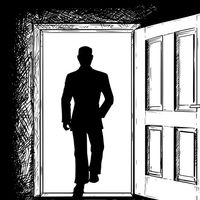
After my previous mention of the Sour Grapes doc in 5BF, my brother, who’d also read Billionaire’s Vinegar, said, “Oh, if you like that, I have something you’ll really like.” He sent me this New Yorker piece.
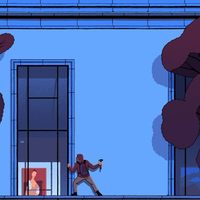
I printed this out weeks ago and placed it on my kitchen table to read. Each time I walked past it, I had the distinct feeling of “this seems important for me to read,” and it was. This article is a beautiful and highly tactical description of long walks, using technology on your terms, and finding stillness. Here are two paragraphs out of many that I loved:
I have configured servers, written code, built web pages, helped design products used by millions of people. I am firmly in the camp that believes technology is generally bending the world in a positive direction. Yet, for me, Twitter foments neurosis, Facebook sadness, Google News a sense of foreboding. Instagram turns me covetous. All of them make me want to do it—whatever “it” may be—for the likes, the comments. I can’t help but feel that I am the worst version of myself, being performative on a very short, very depressing timeline. A timeline of seconds.
[…]
In the context of a walk like this, “boredom” is a goal, the antipode of mindless connectivity, constant stimulation, anger and dissatisfaction. I put “boredom” in quotes because the boredom I’m talking about fosters a heightened sense of presence. To be “bored” is to be free of distraction.

Using seven key indicators, such as the rate of entrepreneurship and overall job creation, this list provides a comprehensive overview of fastest-growing startup-friendly cities in the U.S. The top three are Austin (#1), Salt Lake City (#2), and Raleigh (#3). There are many more you might not expect, and quite a few should be fantastic places to invest in the next few years.
Thanks to Jason Silva (@JasonSilva) for bringing this to my attention. This entire piece is worth reading, but here are a few paragraphs that really jumped out at me:
How does this story explain the therapeutic effects of psychedelics? As we’ve seen, the self-model is an integrated bundle of predictions – and lots of these predictions, built up over a lifetime of experience, can make us deeply stressed and unhappy. A person with social anxiety expects and experiences the world to be hostile and uncontrollable because she feels vulnerable and unable to cope. The self-model that produces these feelings magnifies the adversity of her social world. Similarly, people with depression anticipate and recollect failure and unhappiness, and attribute it to their own inadequacy. Their self-model makes it hard to access positive experiences, and often feeds on itself in a negative downward spiral. Because our brains are endlessly trying to predict what’s next and reduce the likelihood of error, it’s no wonder that our expectations of ourselves tend to be self-fulfilling.
Theoretically we should be able to re-engineer the mechanisms of our self-model, and so change the way we organise and interpret our experience. The problem is that the self-model functions in a way that’s quite similar to the lenses of our eyes. We see with them and through them, but it’s almost impossible to see the lenses themselves, to really appreciate how they affect the signals that reach us, let alone take them off if they are unhelpful. In general, the mind presents us with the finished product in the form of images, not the modelling processes themselves. So too with the self: for better or worse, we feel like unified entities, not complicated and precarious hierarchical models that track and predict our organismic responses to what’s happening.
[…]
The second effect is more subtle. It concerns the way that psychedelics can enlighten us about the processes behind our own subjectivity. When the self falls apart and is subsequently rebuilt, the role of the self-model seems to become visible to its possessor. Yes, this offers a psychological reprieve – but more importantly, it draws attention to the difference between a world seen with and without the self. For an anxious or depressed person, psychedelics make it possible to appreciate the intermediate, representational role of the self-model. Ego dissolution offers vivid experiential proof, not only that things can be different, but that the self that conditions experience is just a heuristic, not an unchangeable, persisting thing.
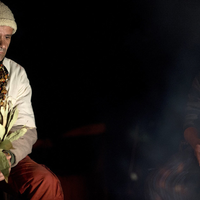
This short book has completely captured me. It was first recommended by Peter Mallouk, who said it gave him peace for weeks at a time. I grabbed the Kindle version with low expectations, devoured it in three days, and I’ve since bought 20 copies of the paperback to give out to friends [Update: 60+ copies]. It found me at the right time and won’t resonate with everyone, but it has equally impressed several of my best buddies.
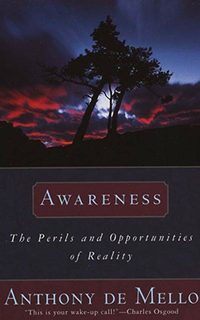
Spirited Away—as mentioned in my chat with Adam Savage—is my favorite movie of all time. This book is awe-inspiring and shows the depth of world-creation that makes Miyazaki a legend.



